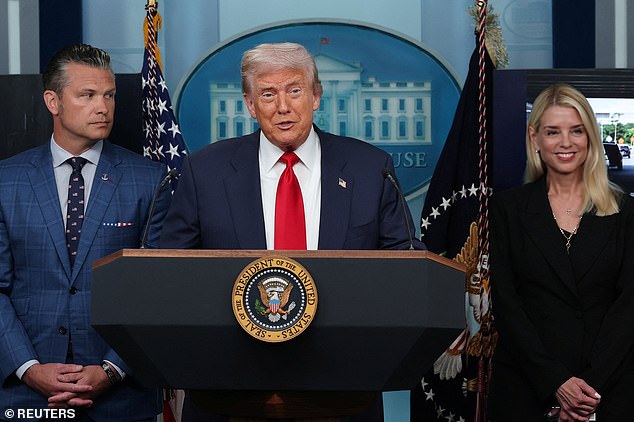The nation’s capital has often been the focal point for political debates, but this week, the conversation shifted sharply toward public safety and federal authority.
President Donald Trump took the stage at the White House on Monday morning with a bold message: Washington, D.C., was about to see a dramatic shift in how it is policed and governed.
Trump declared that he would take direct federal control of the D.C. police department — a rare and controversial move that he said was necessary to restore law and order.
Flanked by senior officials including Attorney General Pam Bondi, U.S. Attorney for D.C. Jeanine Pirro, FBI Director Kash Patel, Defense Secretary Pete Hegseth, and Interior Director Doug Burgum, the president insisted that the city had fallen into chaos and that his administration would “take our capital back.”
A Crackdown With Military Backing
Alongside his declaration, Trump announced plans to deploy National Guard troops throughout the city, with the possibility of adding U.S. military forces if needed.
He made it clear that these forces would be given full authority to “do their job properly,” stressing that federal law enforcement would be “aggressive against criminals.”
His tone was unapologetically tough: “You spit and we hit — and we can hit real hard.”
This latest move came after a weekend in which federal officers had already been positioned around the city, signaling that something significant was on the horizon.
Trump’s plan also includes clearing homeless encampments from D.C. parks and public spaces, citing concerns over safety and the city’s image.
A String of Violent Incidents Fuels the Push
Trump’s urgency appeared rooted in several recent crimes that have grabbed national attention.
He recounted the story of 19-year-old Edward Coristine, a former government employee, who was brutally beaten during an attempted carjacking near the bustling nightlife hub of 14th Street.
The president shared a bloodied photo of Coristine online, calling the attack a sign of the city’s growing lawlessness.
The assailants — two 15-year-olds from Maryland — were arrested and charged, but Trump used the case to argue for prosecuting violent teenagers as adults.
He linked Coristine’s ordeal to a broader wave of high-profile crimes, including the fatal shooting of a congressional intern, the murder of a former Trump administration official, and the carjacking of a Democratic congressman.
Tensions Over Crime Statistics
While Trump paints a picture of spiraling violence, D.C.’s Democratic Mayor Muriel Bowser has pushed back.
She has pointed to police data showing that violent crime has actually declined since 2023, despite several headline-grabbing incidents.
The president acknowledged Bowser as “a good person who has tried” but argued that the city remains “dirtier and less attractive” under her leadership.
Bowser has introduced her own measures, including a special police unit to combat juvenile crime, and she dismissed comparisons to war zones as “hyperbolic and false” after White House staffers likened D.C. to Baghdad.
The Legal Hurdles to Federal Takeover
Trump’s vow to “federalize” D.C. faces significant legal and political roadblocks.
Under the 1973 District of Columbia Home Rule Act, residents elect their own mayor and city council, and stripping them of that authority would require an act of Congress.
Even with Republican control of both chambers, repealing the law would likely face a Democratic filibuster in the Senate.
The idea is also deeply unpopular among D.C.’s roughly 700,000 residents, many of whom are opposed to losing self-governance.
Nonetheless, Republicans have continued to push legislation to make it happen.
Earlier this year, Sen. Mike Lee (R-UT) and Rep. Andy Ogles (R-TN) introduced the “BOWSER Act” — a bill named after the mayor — which would dismantle D.C.’s local government one year after passage.
What Happens Next?
The political clash over D.C.’s future is far from over.
For Trump, the move is framed as a fight to protect the nation’s capital from what he calls “violent gangs, roving mobs, and chaos.”
For Bowser and her allies, it’s about defending the city’s right to govern itself.
Whether Congress will move forward with efforts to strip D.C. of home rule remains uncertain.
But one thing is clear: the battle over control of Washington has just shifted into high gear, and both sides are preparing for a long, high-stakes showdown.
